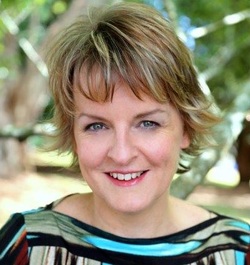THE NUMBER 1 MOST EFFECTIVE TACTIC FOR SAVING MONEY
Have you ever felt like you *should* be able to save more (especially when you look at how much you earn) but somehow, you don’t?
And when you do try to save, does it feel like you’re just penny pinching; spending a little bit less money but a lot more time and energy to live a life that’s deprived of all the things you enjoy?

Saving more or paying off debt while still living a life they enjoy is exactly what Sarah McMurray helps clients with. She’s not a budget advisor. Rather, Sarah combines a focus on getting the numbers “right” with a focus on making sure that your life right now is one you want to lead. Through a combination of figuring out:
- your “why” for your long term goals
- what your needs and wants truly are (hint: everyone “needs” a lot more than just the basics)
- where your money is going without you even realising it
Sarah McMurrayThe One Most Effective Tactic for Saving Money
“If you only want to do one thing to save money, then the most effective thing you can do is to track where every dollar is spent.”
It’s effective, but it’s not for the faint-hearted, because it is a bit of a pain, and it shows the plain truth about where the money is going.
The way we spend money these days, we’re completely disconnected from the reality of what we’re doing. When we are actually aware that we’re paying for something, the “pain” areas of the brain light up. Credit card companies and retailers work very hard to keep the pain of paying separate from the joy of buying.

Becoming mindful that we’re spending money (yet again) as we’re spending it is a real eye-opener for most people. Because we genuinely forget. We remember that we decided to stop at the bakery. We forget that we popped into the chemist next door as well. We remember paying for the meal at the restaurant. We forget that we also left a tip and had to pay for car parking.
As a result, our mental addition of what we spent is completely wrong, and when we do look at the bank account or credit card statement, the most common response is “Where did all the money go?!”
So if you’re not happy with how much money’s left at the end of the month, try tracking your spending each day. Sadly, automatic tracking systems don’t work to change your behaviour – they are also painless – they’ll tell you what you did, but you won’t be prompted to pay more attention as you’re spending.
Use whatever method works for you – photograph each purchase on your phone, use a note book and pen; set up a spreadsheet and update it daily. Just the simple act of remembering that you need to track this purchase will change what you buy.
Are You Ready?
Ready for what? To start saving more money! Sarah works with clients to help them to meet their financial goals without feeling like they’re building up a lifetime of regrets and missed opportunities. Get in touch with Sarah today on 09 579 7162, 021 424 923 or visit www.relatingtomoney.co.nz
Recent Posts
Pages
Useful Links
Services
Contact Details
Phone: 0800-890-132
Email: support@epsomtax.com
Fax: +64 28-255-08279
EpsomTax.com © 2021
